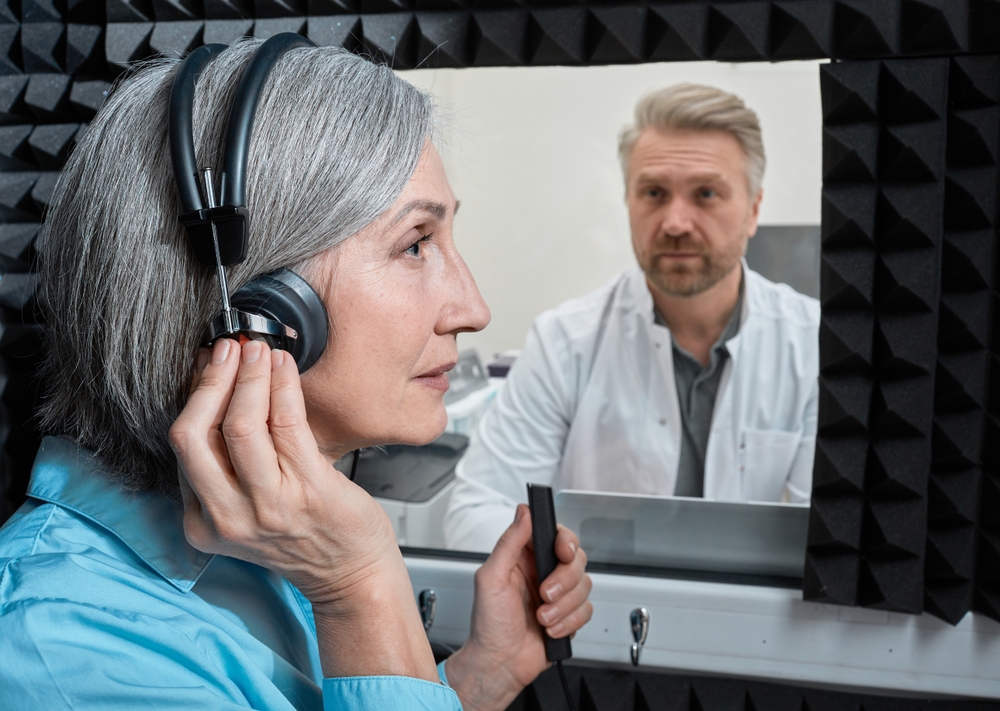As we get older, we tend to keep a close eye on our health—routine checkups, blood pressure checks, eye exams. But one vital area often gets overlooked: our hearing!
Hearing loss is more common than many people realize, and it can creep in gradually, especially after age 50. The good news? Regular hearing tests are quick, painless, and can make a huge difference in your overall health and quality of life!
Hearing loss: a common (and often silent) issue
Hearing loss doesn’t always look like turning the volume all the way up or asking people to repeat themselves. It can be subtle at first—like missing parts of conversations, especially in noisy places, or feeling like people are mumbling more often.
In fact, 1 in 3 adults over age 65 has hearing loss, and about 28% over 52 have trouble with daily activities as a result. The problem? Because hearing loss develops gradually, most people don’t realize how much they’re missing until it starts impacting their relationships, work, or mental well-being.
Why hearing tests after age 50 matter
Just like an annual physical or vision screening, a hearing test is a proactive way to protect your health. Here’s why they matter:
Early detection means early action
The earlier hearing loss is caught, the easier it is to manage. Regular screenings allow audiologists to track changes over time and recommend solutions before the issue becomes more advanced.
Hearing health is linked to brain health
Studies have shown that untreated hearing loss is associated with a higher risk of cognitive decline and dementia. That’s because the brain works harder to “fill in the blanks” when hearing is impaired, which can lead to mental fatigue and reduced cognitive function over time.
Better communication, stronger relationships
Hearing loss can lead to frustration, social withdrawal, and even depression. When you’re constantly straining to hear—or misunderstanding others—it can take a toll on your personal and professional life. Addressing hearing issues helps preserve meaningful connections.
Hearing affects balance and safety
Your ears do more than help you hear—they also play a role in your balance and spatial awareness. Hearing loss has been linked to an increased risk of falls, especially in older adults.
What to expect during a hearing test
A hearing test is simple, painless, and typically takes under an hour. You’ll meet with an audiologist who will:
- Discuss any symptoms or concerns
- Use headphones to test how well you hear different tones and pitches
- Possibly perform speech recognition tests or other assessments
If hearing loss is detected, you’ll discuss options, which may include hearing aids, assistive devices, or lifestyle adjustments to improve your hearing health.
How often should you get a hearing test?
Experts recommend a baseline hearing test at age 50, followed by annual or biannual checkups, especially if you:
- Notice changes in your hearing
- Have a family history of hearing loss
- Work or have worked in noisy environments
- Already wear hearing aids
Don’t wait to get your hearing checked
Your hearing affects how you connect with the world. Regular screenings after 50 can help you stay sharp, social, and independent—and they’re one of the easiest health checks you can schedule.
Not sure where to start? Find a hearing specialist near you to book a hearing evaluation. Whether you’ve noticed changes or just want peace of mind, hearing specialists are here to support your hearing—and your health—every step of the way!



